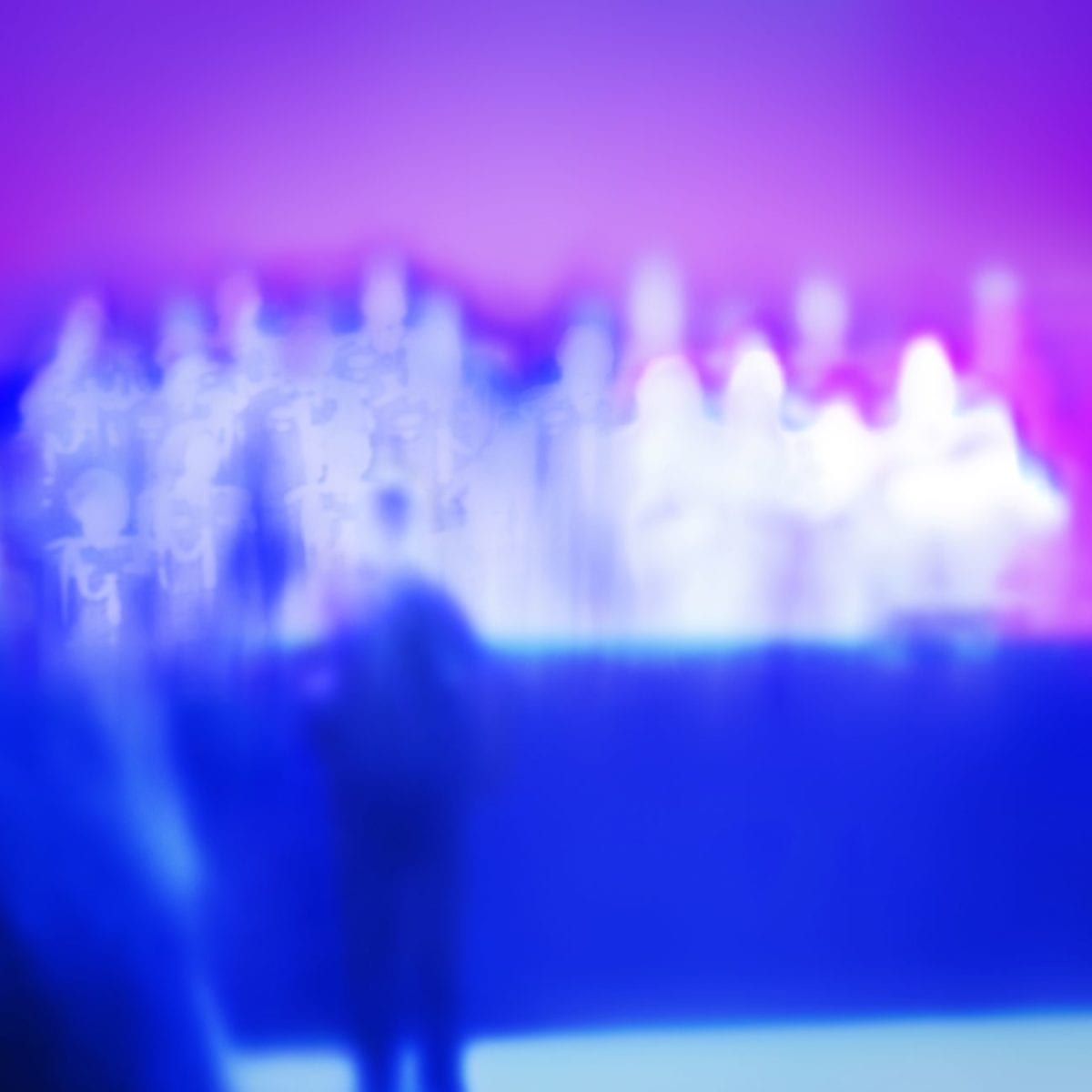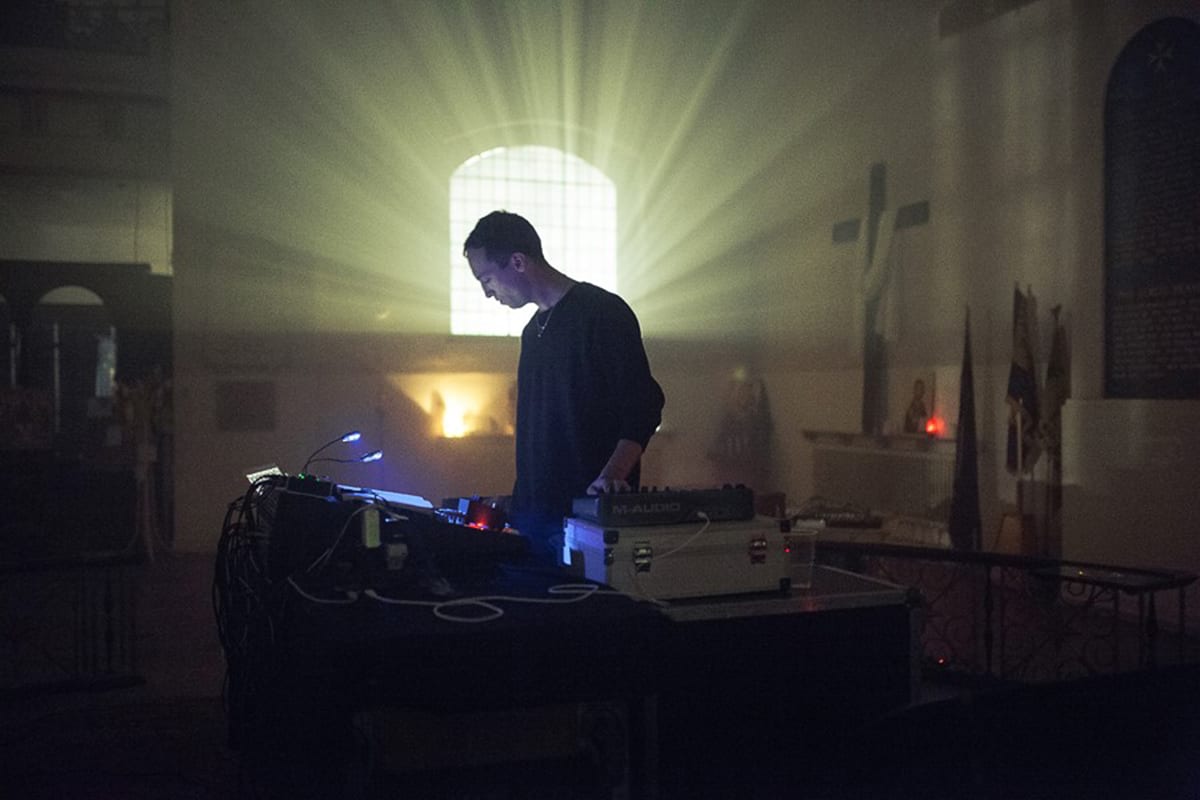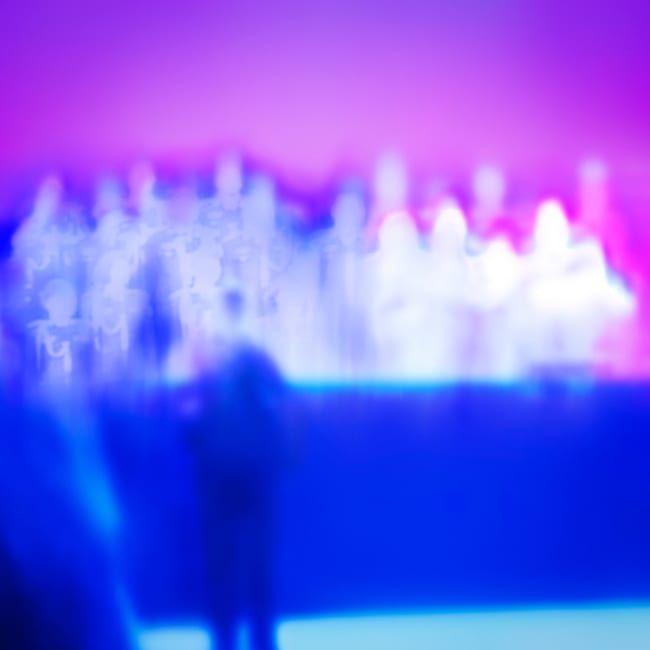
My first experience of Tim Hecker came about six years ago, a live set in a sweaty room at a Butlins resort bathed in the warm haze of slow cooking rancid hot dog meat – a far cry from the grandiose churches Hecker tends to record and perform his music in. Vicious bass and extreme volume caused the room to shake, the walls seeming to bend and warp while occasionally achingly beautiful chimes of piano keys and organ broke through, adding something real to the hallucinatory intensity.
Hecker’s music is crafted from overloaded digital noise and minutiae. Organs compressed to an inch of their lives and divine melodies. ‘Love Streams‘ captures all of these seeming contradictions and pulls them into a coherent form. It is not a revolution in his oeuvre, but a natural re-arranging and progression of the textures he has become associated with.

"Hecker is a leading example of a trend for traditionally outsider music to share a platform with pop."
Undoubtedly, the music Hecker makes is extreme, dabbling in noise as much as modern classical sounds and ambient, and yet over the last few years it has edged increasingly towards the mainstream without any obvious watering down of its bone shattering ferocity.
If anything, it has become more vicious – compare the warm radio drones of 2003’s ‘Radio Amor‘ for instance, with some of his most recent work. Culminating with this release on 4AD, Hecker is a leading example of a trend for traditionally outsider music to share a platform with pop.
2011’s ‘Ravedeath 1972‘ was built on tortured church organs, and 2013’s ‘Virgins‘ on bombastic live instrumentation. Love Streams though, is a different beast. Electronic instruments are brought to the fore, whether the bubbling synth pads which open ‘Obsidian Counterpoint’, or the analogue drone of ‘Music of the Air‘. Individual sounds are allowed to poke through with greater clarity than before, sometimes to beautiful effect, other times to create something sinister and unsettling.

"Hecker's deft hand as a composer, an element of his work so often ignored with talk of his epic sound art, is much harder to overlook on Love Streams."
While his last two full lengths seemed to revel in burying modern classical sounds in the electronic, ‘Love Streams‘ inverts this approach: synthesised source material arranged and moulded into something elegant and powerful.
Volume and intensity are still key facets, a sense of euphoria only reachable on the brink of tinnitus, but more than ever-melodic elements are crucial. Moments of saturation, although present, happen less frequently. Hecker’s deft hand as a composer, an element of his work so often ignored with talk of his epic sound art, is much harder to overlook on Love Streams.
This is clearest on ‘Violet Monumental II‘, in many ways the defining track on the album. Built on a Steve Reich like looping synth arpeggio, counter melodies slowly float into the track followed by brittle percussive sounds. The piece doesn’t get smothered in static, or launch into epic cathedral doom, the naked instruments and arrangement enough to carry its three-minute duration.
Voices add another new layer to Love Streams, proving that Hecker continues to expand his tool kit. The Icelandic choir deployed on tracks like ‘Castrati Stack‘ and ‘Black Phase‘, although recorded live, sound artificial, disembodied and unnatural. The closest comparisons are the choral works of Ligeti, a mass of voices used to sing staccato stabs or hold fractured drones; and Dadaist sound poetry from the 1940s – voices brutally contorted into something new and unfamiliar. The common metaphors used to describe Hecker’s music normally involve cathedrals or celestial imagery, but Love Streams also captures the sinister, twisting fragments of the graveyard outside.
"The boundaries between pop and experimental music are less defined than they've ever been, allowing extreme music by left field composers to reach a bigger audience than it has for years."
The album comes in the midst of what until very recently seemed an unlikely transition in pop culture. Ryuichi Sakamoto has won plaudits for sound tracking the Revenant. PAN records have been one of the biggest successes of the last few years, despite having a history rooted in noise and musique-concrete as much as futuristic club music.
4AD list Future Islands and Grimes among their recent big successes, yet they also put out Holly Herndon’s ‘Platform‘ last year. The boundaries between pop and experimental music are less defined than they’ve ever been, allowing extreme music by left field composers to reach a bigger audience than it has for years.
Whether it’s a result of people’s tastes becoming more diverse in the wake of file sharing, or decades of extreme music lowering the threshold of what’s considered ‘a bit too weird’, the outcome is clear. Albums such as Love Streams no longer have to be judged solely by the niche standards of experimental music.
Love Streams is out now on 4AD, order a copy from Boomkat.
- Look out for our interview and photo shoot with Tim Hecker, coming soon.
- Tim Hecker performs at St John Sessions on 5th May 2016 alongside Rezzett and Kara-Lis Coverdale. More info here.
TRACKLIST
1.Obsidian Counterpoint
2.Music of the Air
3.Bijie Dream
4.Live Leak Instrument
5.Violet Monumental I
6.Violet Monumental II
7.Up Red Bull Creek
8.Castrati Stack
9.Voice Crack
10.Collapse Sonata
11.Black Phase
Discover more about Tim Hecker and 4AD on Inverted Audio.